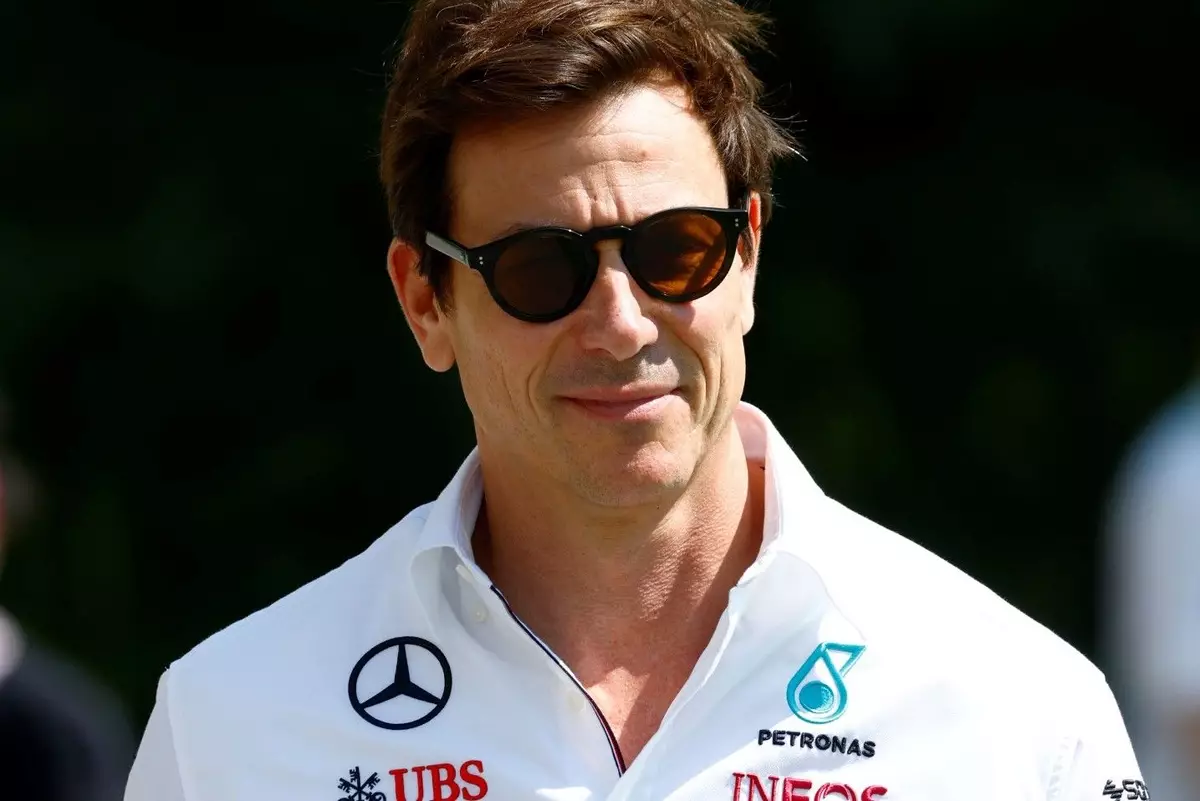Toto Wolff, the prominent team principal of Mercedes in Formula 1, recently made headlines with his remarks regarding Lewis Hamilton’s anticipated departure to Ferrari after this season. Wolff’s comments have sparked widespread media coverage and public debate, particularly about whether he harbors any satisfaction at Hamilton’s exit. In an era where every word from F1 leaders is scrutinized, Wolff found it necessary to clarify his statements on BBC Radio 4’s Today programme. He emphasized that his words were misinterpreted, signaling the delicate balancing act between managing public perception and the realities of competitive sport.
Wolff asserted that the notion of being “happy” about Hamilton’s departure could not be further from the truth. He pointed out that Hamilton’s exit allows Mercedes to sidestep a challenging moment—a time when they would have had to make a difficult decision about parting ways with one of the sport’s most celebrated drivers. The subtleties of Wolff’s comments reflect the complexities inherent in team dynamics and the acknowledgment of an athlete’s career timeline.
Hamilton’s tenure with Mercedes has undeniably transformed the team into a powerhouse in Formula 1, characterized by six world titles and numerous race victories since his arrival in 2013. However, the current season has posed various challenges, with Mercedes struggling to maintain its previous dominance. As the team faces a new chapter ahead of Hamilton’s switch, the pressures of filling his seat alongside George Russell loom large. The decision to promote Andrea Kimi Antonelli from Formula 2 adds an interesting layer to this strategy, extending the team’s commitment to nurturing young talent amid transitions.
As Hamilton prepares for his final races with the team, including an emotional farewell to fans, his performances remain closely watched. Despite uncertainties surrounding his future with the team, Hamilton has managed to clinch two wins this year, showcasing the skills that have defined his career. The juxtaposition of his enduring talent against the backdrop of a potentially declining performance is part of the growing narrative in the sport.
Wolff raised the conversation about the “shelf life” of an athlete, highlighting an inevitable truth within competitive sports: the physical and mental decline that comes with age. His reflections hint at a broader understanding of how even elite athletes must navigate the transition from peak performance to possible retirement or a shift in competitive capacity. This dialogue underscores the necessity for drivers and teams alike to continually evaluate their positions and adapt to the landscape of the sport.
While Wolff acknowledges that Hamilton retains substantial expertise and an unmatched racing acumen, there is an underlying recognition that age does play a role in the dynamic of Formula 1 racing. While many fans cling to their admiration for Hamilton’s past achievements, the challenges of this season illustrate that even the most gifted drivers have to confront limitations and evolving competition. The distinction between ‚great‘ and ‚good‘ is stretching; the sport demands excellence, something Wolff attests Hamilton still embodies in spades.
Looking Forward: Mercedes and Hamilton’s Future
With Mercedes accepting that a fourth-placed finish in the constructors‘ standings is likely, there is an air of cautious optimism around the team’s future. Findings suggest that teams must adaptive and strategic, especially with rising talent like Antonelli ready to make an impact. The roadmap ahead not only involves reshaping the current setup but also requires laying the groundwork for sustained success in the coming years.
Hamilton’s looming transition to Ferrari signifies both an end and a new beginning. For Mercedes, embracing change is vital in a sport that remains fiercely competitive. Whether Hamilton excels in red, or whether new, young talents can bolster Mercedes‘ comeback strategy, the evolution of this storied team will undoubtedly be the subject of much speculation and anticipation shaping the upcoming seasons. For now, as the racing community gears up for the Las Vegas Grand Prix, both Hamilton’s legacy and the future of Mercedes remain at a poignant crossroads.


Napsat komentář